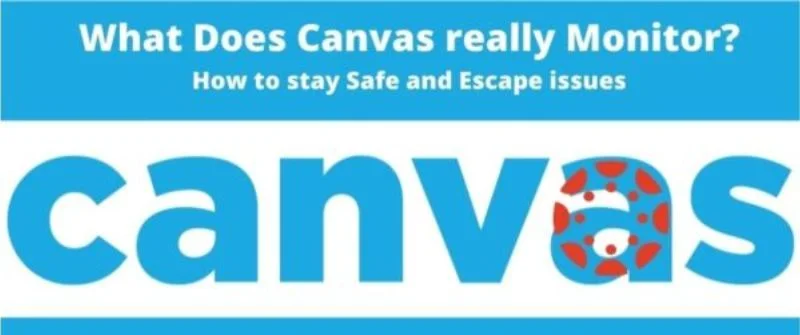Proctor Cheating: How Students Cheat it and Prevention Tips
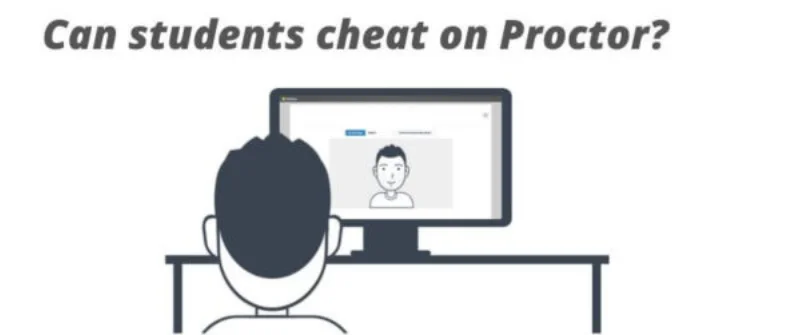
Proctor is one of the proctoring tools that have been created to mitigate cheating during online exams. Though this is the case, students have found a way to cheat on Proctor.
In this article, we explore Proctor cheating, its possibilities, prevention, and more. However, before delving into the issue of cheating on Proctor, it is important to know what Proctor is.
Get that A on your next essay assignment without the hassles. Any topic or subject. 100% Plagiarism-Free Essays.
What is Proctor?
Proctor is an online exam/test proctoring tool that provides a secure, cost-effective, and convenient substitute for traditional exam centers. Proctor allows students to take their tests or exams at their convenience – in the comfort of their remote locations at any time of day.
For Proctor to work effectively, the test-taker should ensure that they have a strong and consistent internet connection to their computer. Secondly, the test-taker should have a working webcam.
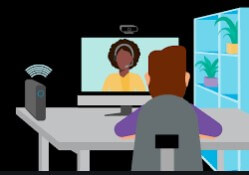
Most of the current computers and laptops come with a webcam.
However, those using monitors without a webcam should purchase one and install it because a webcam is a must-have when taking Proctor tests and exams.
The student or test-taker should also have a working microphone. Most of the computers and laptops that have webcams have microphones.
The main purpose of a microphone during Proctor tests and exams is to “listen” to what is being said within the environment of the test-taker. It ensures that the student does not have a per
on within their vicinity who is verbally feeding the student with the correct answers.
Can you cheat on Proctor
Ideally speaking, you cannot cheat on Proctor because it has strict restrictions and mechanisms that detect cheating if a student breaks those restrictions. By using the webcam, the microphone, and a special browser to monitor the activities of the student, it is not possible to cheat Proctor, especially with the examiner watching what is happening in the room.
Also, Proctor requires the students to take their tests or exams within a quiet, private, and well-lit vicinity or room. The reason for this is to enable the camera and the microphone to function optimally and provide clear feedback.
If a vicinity or room is poorly lit, then the webcam cannot record the student and their remote location well. On the other hand, if the vicinity is not quiet, the microphone will not be able to distinguish noise from suspicious voices.
A private area ensures that the camera and the microphone focus solely on the test-taker. Finally, a test-taker requires a Proctor account to take the test or exam.
Proctor uses artificial intelligence to monitor test-takers’ devices when they are taking their exams or tests. Therefore, when Proctor is installed and activated within a computer, the test-taker loses control over their device with the microphone, webcam, and keyboard being the main targets.
The activities on the monitor are also recorded by Proctor. While taking an exam or test, students are not allowed to switch off their device or turn off any primary function such as the webcam or the microphone. This is considered suspicious activity.
People Also Read: Issa Final Exam Cheat Sheet: How to Pass the ISSA Exam
How does Proctor Detect Cheating?
Now that we have discussed what Proctor is and how it works to mitigate cheating during online exams and tests, it is time to explore how the tool detects cheating. As aforementioned, when Proctor is activated within a device, the test-taker loses control over the device.
Limiting the Activities of the Test Taker
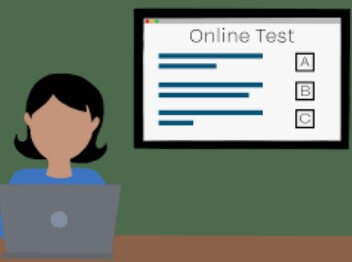
It limits the activities of the test-taker while the exam is ongoing.
Proctor records the computer monitor’s activities, activates the webcam and microphone, and monitors the test-taker’s keyboard activities.
By doing so, Proctor can detect cheating.
However, it is important to note that Proctor detects cheating by identifying suspicious activities that are done by the test-taker.
2. Flagging Suspicious Activities
One of the “suspicious activities” that can act as a red flag is when students fail to follow Proctor’s exam guidelines.
For example, since online exams and tests should be taken within private areas as per Proctor’s guidelines, taking them in public areas such as coffeehouses and libraries is considered a red flag.
Again, since no breaks are allowed during the exam sessions, taking breaks acts as a red flag when detecting cheating.
Finally, since smartphones and any other communicative devices are prohibited, having them around during the testing session is considered suspicious activity.
3. Using the Webcam
The other method used by Proctor to detect cheating is by using the webcam. When Proctor is launched, it automatically activates the webcam. The webcam records the test-taker’s activities and their surroundings.
The webcam records the test-taker’s head, eyes, hands, and body movements. Ideally, the test-taker’s head and eyes should be focused on the screen/monitor of their device.
Constantly shifting the head away from the screen/monitor may be interpreted by Proctor’s algorithm and examiners as an attempt to look at answers located away from the webcam’s field of view.
This is because test-takers may have a book, device, or another person near them but away from the webcam’s field of view. Therefore, if the test taker shifts their head constantly, this is considered to be a suspicious activity that can be interpreted as cheating.
The webcam also monitors the eye movements of the test-taker. As noted, the eyes should be focused on the screen because that is where the questions are displayed.
4. Monitoring Eye and Body Movements
If the test-taker constantly shifts the focus of their eyes away from the screen, it can be interpreted as an attempt to view something that can aid them during the exam.
The test-taker may have a helper positioned away from the webcam’s field of view or they might have placards with answers.
Therefore, Proctor detects cheating if the test-taker constantly shifts their eye movements away from the screen.
Moreover, the webcam also monitors the test-takers environment within its field of view. If it detects any prohibited device such as a smartphone or a communicative device, it considers it cheating.
Books, papers, or any other material located near the test-taker are prohibited and their presence is interpreted as an attempt to cheat. Since the test-taker is supposed to do the exam alone, any person that appears within the webcam’s field of view is considered as someone who is helping the test-taker to cheat.
5. Using the Microphone
Proctor uses the microphone to detect any sound within the test-takers vicinity. Since the required vicinity should be quiet, any voices recorded by the microphone are interpreted as an attempt to cheat during the proctored exams.
This is based on the assumption that there could be a person seated next to the test-taker but away from the webcam’s field of view who is verbally telling the answers to the student.
Therefore, if the microphone detects any voice or suspicious sounds within the test-taker’s location, then it is assumed that they are cheating.
6. Monitoring the Keyboard
Concerning the keyboard, Proctor actively monitors its activities and restricts some of its functions. For example, copy-paste and print functions are restricted. If the test-taker attempts to use them, it means that they are trying to cheat.
7. Blocking Printing and Copy-Paste
They may be trying to copy answers from another program and copy it directly to the exam’s dashboard. They may be also trying to print the questions so that they can give them to someone around them. Any prohibited activity on the keyboard is considered as an attempt to cheat.
8. Using special Browser
Since it utilizes a special browser, only the window and tab containing the questions are allowed to remain open. The test-taker is not allowed to open any other window because they may be trying to seek online help from Google.
9. Restricting other Computer Programs
On the other hand, opening other programs is restricted. If the test-taker can bypass this restriction and open other programs, it is considered cheating.
People Also Read: 12 Effects of Cheating in College: Examples and Solutions
How to Cheat Proctor
As noted, Proctor monitors screen activities. Ideally, Proctor is supposed to override all the functions of a computer so that it can restrict any activity that can provide an opportunity to cheat.
However, there are some students who have reported trying to use the following methods to cheat Proctor. In as much as we know these methods to cheat on exams do not work, we hereby share them anyway.
1. Screen Mirroring/Sharing
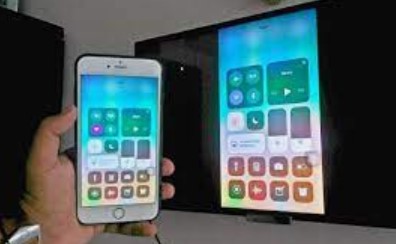
This is where a test taker utilizes more than one screen/monitor while taking the proctored test.
Since there is no physical examiner to monitor the activities of exam takers while in their remote locations, candidates can use one monitor to access test questions.
While at it, the other monitor mirrors those questions to another person who provides answers for them.
This happens simultaneously since the proctored tests and exams are timed.
2. External Projector
This is a variation of using multiple monitors to mirror your main monitor. The candidate will ensure that the projected images face away from the webcam.
Those images should be only visible to you and your knowledgeable friends who are located on the other side of the room. The images projected should prompt a discussion or research by your friends and in the processed signal you an answer simultaneously.
If more than one candidate is to use the same computer to take their online exam, ensure that there are no digital footprints such as browser cookies or using the same IP addresses. Again, any unnecessary movements should be avoided because the microphone and the webcam may detect them.
3. Using Virtual Machine
In this method, a candidate can run two operating systems at the same time within the same computer. In such a scenario, one OS runs the computer while the other OS can be minimized just like a computer program.
Your computer will behave like two computers and a knowledgeable friend can sit in the opposite direction and take the test for you. The webcam will be run by the main OS while the test is run by the OS in the background.
This is an effective method that can allow a test-taker to surf through the internet for answers to engage in any activity within their computer that may help them get the right answers.
4. Intercepting Video Feeds
This method involves putting software between the proctoring software and the webcam of your computer. During Proctor exams, the proctoring software relies on the webcam to monitor the candidate’s activities that may signal cheating during an exam.
When the proctoring software attempts to pull a live feed from the candidate’s webcam, the software intercepts it and provides a prerecorded feed from a “virtual” webcam. This means that the test-taker should prerecord themselves as though they are doing the exam before the actual exam.
Understanding the Risks of Proctor Cheating
While there are various methods of cheating during Proctor exams and tests, the test-taker may be caught if they have not done it effectively.

One small mistake can make a candidate get caught.
If they are caught, the candidates can face academic disciplinary measures just like when a student is caught cheating in a physical classroom or examination center.
What should be noted is that Proctor works with institutions to detect cheating among their candidates.
This means that Proctor does not penalize the students. Only the institutions and instructors will penalize the students if they are caught cheating.
The penalties will be based on institutions and instructors. If a student is caught cheating by Proctor, then the institution can terminate their course, suspend them, give them an academic warning, or deduct some points from their score.
How Schools Prevent Proctor Cheating
One of the methods used by schools to prevent Proctor cheating is by using secure browsers while administering online exams and tests. Such browsers restrict student’s activities on their computers.
Some are powerful enough to override other programs within the computer and restrict the test-taker to the exam environment.
Another method is using several high-resolution cameras. In this method, the student is required to take their online test in an environment where multiple cameras are surrounding the student, including their webcam.
This ensures that all angles are captures so that no person or suspicious material can be hidden from the field of view.
Schools also detect the IP address of the candidate’s computer to ensure that they are taking their online tests within the agreed location.
Again, noting the IP address of the computer and associating it with the candidate’s ID can help prevent impersonation, or several students using the same computer to take their online tests.
People Also Read: How to Cheat Edgenuity and How it Detects Cheating
Can Proctor See your Screen?
Proctor can see your screen. This is important because it records the activities of the candidate on their computer. Like other proctor software that works to prevent cheating, it has to monitor the screen.
Seeing the screen enables Proctor to detect any suspicious activity such as opening new tabs or windows in the browser, or opening other programs on the computer.
FAQs
Can you be caught cheating on Proctor?
Yes. Several mechanisms have been put in place to detect and catch online exam cheaters. Such mechanisms include webcams, screen recording, microphones, and monitoring keyboard activities.
Can Proctor see your screen?
Yes, Proctor can see your screen to monitor any suspicious activities such as opening new tabs and windows or launching other programs.
Do you need a webcam for Proctor?
You must have a webcam for Proctor. This is because Proctor relies heavily on webcams to monitor the activities of the candidate and their surroundings.
Why is Proctor bad?
Proctor is bad because it infringes on the privacy of students. Most students are very young and it is not okay to be monitored by strangers while in their personal space. The recorded footage can be accessed by malicious hackers and used against students.
Does Proctor track eye movement?
Yes. Proctor tracks the eye movements of candidates to ensure that they remain focused on the screen. If they constantly move their eyes away from the screen, it is assumed that they are cheating by looking at someone or something that may reveal the answers.
Can Proctor see your hands?
Yes. Proctor can see your hands using the webcam. This is important because candidates may use their hands to access their phones or books. They can also write questions on a paper and give it to someone so that they can write answers for them.

Josh Jasen or JJ as we fondly call him, is a senior academic editor at Grade Bees in charge of the writing department. When not managing complex essays and academic writing tasks, Josh is busy advising students on how to pass assignments. In his spare time, he loves playing football or walking with his dog around the park.





